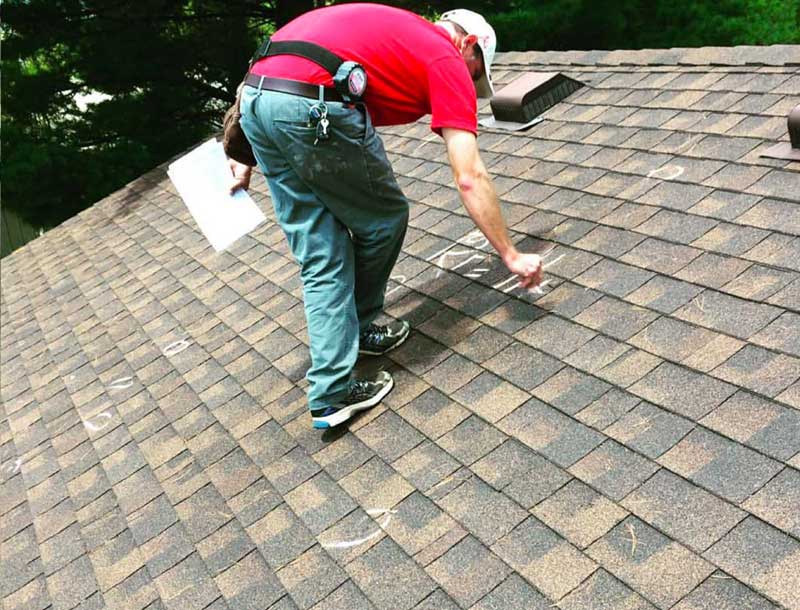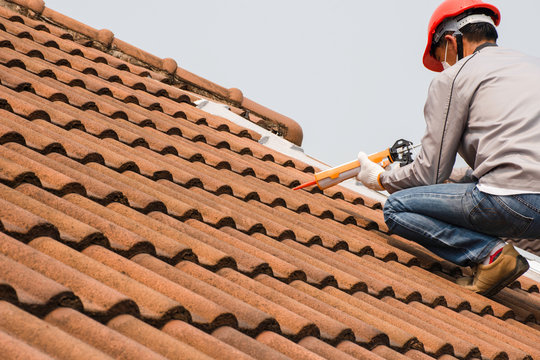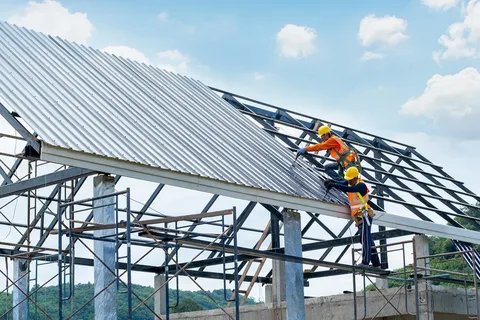When it comes to roof installation, timing is everything. The season you choose can make a big difference in pricing, scheduling, material performance, and long-term results. So, what’s the best time of year to install a new roof?
Let’s break down each season and explore the pros and cons to help you choose the best time for roof installation—based on weather, cost, and convenience.
Spring: A Great Time for a Fresh Start
Pros:
-
Mild temperatures make it easier to work with roofing materials.
-
Fewer weather interruptions compared to summer or winter.
-
Roofing companies are just starting to get busy, so scheduling is still flexible.
Cons:
-
Spring showers can delay installation.
-
Moisture levels are higher, which might slow down certain types of material drying or curing.
Verdict:
Spring is a popular season for roof installation, especially for homeowners looking to get ahead of peak summer demand.
Summer: Peak Season for Roofing Projects
Pros:
-
Consistent warm weather makes it ideal for roofing adhesives and sealants to set properly.
-
Longer daylight hours mean faster job completion.
Cons:
-
It’s the busiest season, so roofing companies may have longer wait times.
-
Prices are usually at their highest due to demand.
-
Extremely hot days can be hazardous for roofing crews.
Verdict:
If you plan in advance and don’t mind peak pricing, summer offers reliable weather for a smooth roof installation project.
Fall: The Sweet Spot for Roof Installation
Pros:
-
Cool, dry weather is perfect for installing shingles and other materials.
-
Roofing contractors are still active but not as overbooked as in summer.
-
Your home will be ready before winter storms hit.
Cons:
-
High demand in early fall can mean scheduling delays.
-
Late-season cold snaps can catch you off guard if you wait too long.
Verdict:
Fall is often considered the best season for roof installation, combining solid weather conditions and manageable scheduling.
Winter: Is Cold Weather a Dealbreaker?
Pros:
-
Roofing companies have more availability.
-
Off-season discounts may apply, saving you money.
Cons:
-
Cold temperatures can affect how shingles seal.
-
Snow, ice, and storms can delay or halt the installation.
-
Material handling is more difficult in freezing temperatures.
Verdict:
Winter isn’t ideal, but if your roof is leaking or damaged, emergency roof installation might be necessary. Just make sure your installer has winter experience.
Which Season Is Right for You?
Choosing the best season for roof installation really depends on your situation:
-
Want the best weather conditions? Aim for spring or early fall.
-
Need faster scheduling? Winter and early spring are your best bets.
-
Looking to save money? Consider off-season winter discounts.
-
Planning a home sale soon? Get it done before peak real estate months in spring/summer.
No matter the season, the most important thing is working with a reliable roofing contractor who understands how to install roofs properly under different weather conditions.
Tips to Prepare for a Smooth Roof Installation
Even with perfect weather, proper preparation matters:
-
Schedule early. Especially in spring and fall.
-
Ask about weather policies. What happens if it rains or snows?
-
Get a detailed timeline. Know how long the job will take in your chosen season.
-
Clear your driveway and yard. Make space for trucks and materials.
-
Protect your attic and belongings. Dust and debris may fall during work.
Final Thoughts
There’s no one-size-fits-all answer when it comes to the best season for roof installation, but each season has its benefits and drawbacks. The key is knowing your home’s needs, understanding how weather affects roofing work, and choosing a time that fits your schedule and budget.
Whether you go with fall’s balanced conditions or winter’s availability, a successful roof installation comes down to good planning and a skilled contractor.
FAQs About Roof Installation Timing
1. Can roof installation be done in winter?
Yes, but it depends on the materials and weather. Asphalt shingles, for example, may not seal properly in freezing temps.
2. Is fall really the best season for a new roof?
Many contractors recommend fall due to mild, dry weather and fewer storms.
3. How long does a roof installation take?
Typically 1–3 days for an average home, depending on size and weather conditions.
4. Will rain delay my roofing job?
Yes. Roofers will pause work during rain to avoid damaging materials or your home’s interior.
5. Can a new roof lower my energy bills?
Absolutely. New roofing systems with better insulation and ventilation can reduce heating and cooling costs.


